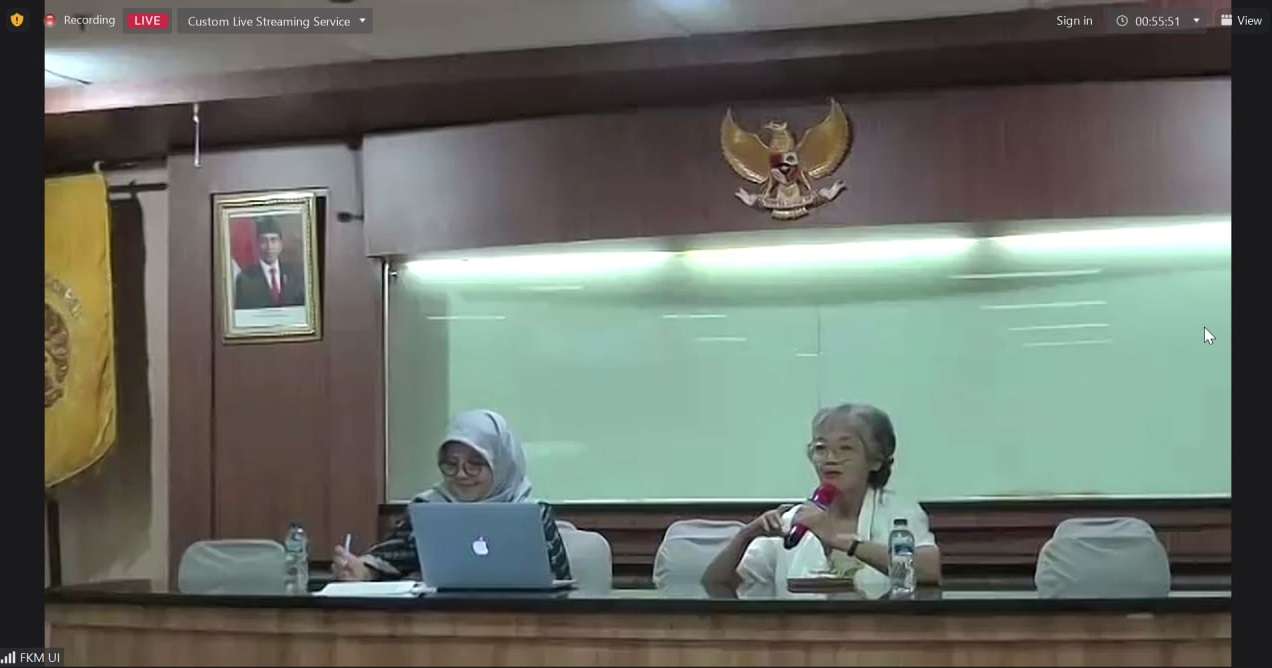
Wednesday, September 13, 2023, the Faculty of Public Health (FPH) Universitas Indonesia (UI) held a public lecture with the theme “Stunting Viewed from Health Sociology”. The seminar, which was held in a hybrid manner in the FPH UI Doctoral Promotion Room, was attended by hundreds of participants from various backgrounds. “Stunting is a complex problem, so it involves all aspects working together to handle it. Today we have Ms. Solita to discuss from a sociological perspective because perhaps currently the problem is parenting patterns. “In the past, cigarettes were the number one expense, now credit is added, while animal food cannot be purchased,” said Deputy Dean for Education, Research and Student Affairs, FPH UI, Dr. Ir. Asih Setiarini, M.Sc., in her opening remarks.
This seminar on stunting was presented by Dr. Solita Sarwono, M.A., M.P.H., FPH UI lecturer in the 90s. Apart from working as a lecturer, Dr. Solita is also a psychologist, public health expert, sociologist, and gender specialist.
Stunting is the main indicator used to determine a child’s nutritional condition. Children who suffer from stunting have an average height that is shorter than their peers due to their malnutrition. In Indonesia itself, the prevalence of stunting is still above 30% with East Nusa Tenggara as the province in Indonesia with the highest rate of stunted toddlers. Almost no province has a stunting prevalence below 20%. “The problem of stunting is not only a health problem, but also a social and cultural problem, which I feel has not received much attention. “Interventions should be carried out by considering social and cultural backgrounds,” said Prof. Dr. dra. Evi Martha, M.Kes as moderator at this seminar.

“The causes of stunting are broadly barren natural conditions, poor nutrition, poor sanitation, lack of access to maternal and child health facilities, parent-child relationships, and lack of father role,” explained Dr. Solita. Therefore, comprehensive, and targeted interventions are needed, one of which is empowering children and adolescents. This can be done by ensuring equal opportunities and access for women and men to obtain education, health, and security, as well as providing opportunities to obtain training regarding basic skills.
After the material was presented, the question-and-answer session took place in an interesting manner. There were students who were asked to role play to illustrate how to persuade family members to have their children checked for stunting. Because there are several health practitioners, the questions asked are also practical and the answers from Dr. It is hoped that Solita can be applied directly in the field. (BK)

